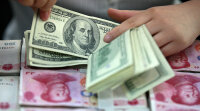The power in rejecting

One thing to which we can all relate as human beings is the pain we feel at being rejected. Whether this rejection comes from a person or an institution or organisation, the initial hurt can be unbearable until we recover from the disappointment. This begs the question: how can we turn something as unpleasant as rejection into something positive?
In these times of coronavirus pandemic, we have been told that our mental health can suffer as a result of all the restrictions imposed on our personal freedom. Further, we have been encouraged to do as much as we can to take care of our mental wellbeing. We have been informed that our mental wellbeing has a direct effect on our physical wellbeing, which is, of course, true. In this regard, we have been urged to go for regular walks and have video calls with our families and friends instead of the face-to-face interactions we would normally have with them.
The pandemic has given us the opportunity to assess or re-assess who or what is important in our lives. With all the free time we have on our hands because of it, we really do have time to think. In doing so, we can come to effective decisions about which people or ideas nurture us and which do not. In other words, we can decide whom or what can be kept because he, she or it contributes to our general wellbeing and whom or what can be discarded.
Although it would be going too far to argue that this is an advantage of having a global pandemic, we may not have had the time or inclination to have this psychological declutter if Covid-19 had not happened.
If we use this time wisely, we can actually improve our mental health by refusing to deal further with toxic people in our lives and/or entertain ideas, which no longer serve any purpose. The feeling of upliftment we would experience by taking these actions would be incalculable. In short, there is a power in rejecting.
Naturally, it is not the role of Government to tell us how to live our lives. We have to live our lives the way we see fit. An essential part of this is having the courage to look inward and accept that we alone are responsible for how we feel. As former US First Lady Eleanor Roosevelt memorably stated:
"No one can make you feel inferior without your consent."
These are words to live by at any time and apply equally to ideas as they do to people.
If we do not take the opportunity for reflection the pandemic has given us to reject whom or what is no longer good for us, we will only have ourselves to blame if our mental wellbeing deteriorates as a result. In the process, we may have also caused our physical health to worsen of our own volition.
The takeaway from all this is that we must use something bad like the coronavirus pandemic to create some good and not just any kind of good, but something good for ourselves. If we do not do so, we are committing the unforgivable sin of failing to take actions, which make us happy. From a sociological point of view, our failure to reject would also be harmful. If we are not happy, how can we make anybody else happy?









